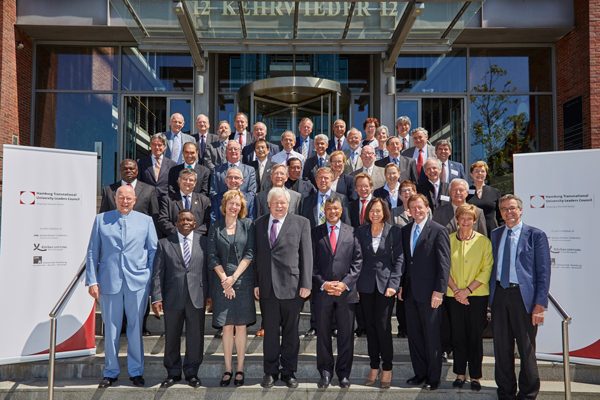At a time when we are facing an extraordinary expansion of demand for Universities, it is important to look not only at the pool of those who attend but also those who do not attend.
All universities have as core missions the provision of higher education and (for most) the furtherance of learning through the discovery of new knowledge and new ideas. We exist to pursue excellence wherever this may be found, irrespective of the social, ethnic, gender or economic background of those we educate or those who conduct research. As a corollary: if there is not fairness in opportunity, both the individual and society may lose out.
One way of looking at fairness of opportunity is through the prism of income. According to the OECD, income inequality in its member countries is at its highest level for the past half century, with an average income of the richest 10% of the population about nine times that of the poorest 10%. Income may, however, not be the best metric for assessing whether access to higher education is fair. In the UK, we use an area based classification system based on the proportion of young residents who go onto higher education. Historically, you are about [three times] as likely to go to university if you come from the top quintile that if you come from the bottom.
Of course, correlation is not causation and it does not follow that if you come from an educationally disadvantaged area you will necessarily benefit from a university education. Nonetheless, in the UK there is a national strategy that all those with the potential to benefit from higher education have equal opportunity to participate and succeed, on a course and in an institution that best fit their potential, needs and ambitions for employment or further study.
The central body for ensuring the strategy is carried out is called the Office for Fair Access. OFFA was set up about ten years ago to make sure that the introduction of higher tuition fees did not deter people from entering higher education of financial grounds. OFFA agrees ‘Fair Access’ arrangements with all HEIs that have tuition fees in excess of £6,000. These agreements are paid for by a levy (currently about £800 on a £9,000 tuition fee). It is worth at this point, incidentally, noting that since tuition fees were introduced in the UK at their present level, in 2012, the number of full time students has grown – and this includes those from family backgrounds with no previous experience of higher education.
While a core element of these fair access agreements is the provision of bursaries, there is also a growing aspect that focusses on measures to attract disadvantaged students and to support them during their studies and as they prepare to move on to work or further study. In the University of Kent, for example, we work with 40 partner schools and 3 partner colleges. We sponsor an academy school that focusses on improving education for particularly disadvantaged children. Overall, we work on an intensive basis with 1500 students per year and employ 340 student ambassadors – working with the existing student body is, incidentally, an important part of our own strategy. Our clear experience is that sustained engagement over time with those at school increases the likelihood that they will progress to University.
Unsurprisingly, perhaps, those from disadvantaged backgrounds often come to university with lower educational qualifications than those from more advantaged backgrounds. There has been criticism that the policy therefore lowers standards overall. That has not, however, been our experience. Nationally, 83% of ‘outreach’ HE entrants achieve a first degree – and 57% a good degree.
Under the previous UK government, there was an emerging policy on improving social mobility overall – not only in terms of access to higher education but also in many other areas of perceived inequality of opportunity. It is too early to tell what policies may be followed by the present government.
From the perspective of the individual, in the UK, a degree can improve lifetime earnings by on average £100,000, compared with those qualifications at the next level down. Insofar as earnings represent a proxy for economic value to society, it is clear that increasing the numbers at university of those able to benefit, represents a gain for society at large – this is not to mention the contribution that graduates can make in other ways.
And in knowledge economies – which, increasingly is what all our countries are becoming – we should ignore at our peril the importance of supporting the gifted individuals who are capable of paradigm-altering insights. Last week, the Physicist Professor Stephen Hawking was quoted in the press as fearing that academics would not now be provided with the same level of support that he himself had received when he was diagnosed with motor neurone disease. I believe he is wrong. But the value to society in providing exceptional support in some circumstances is clear.
What lessons to draw from this overview? I suggest there are three principles that may be relevant not only to the UK but to perhaps others represented at this conference:
- Excellence should be pursued wherever it may be found
- Fair Access is a benefit not only for the individual but for Society as a whole; and, therefore
- Ensuring fair access is a responsibility for both society and universities, working in partnership
